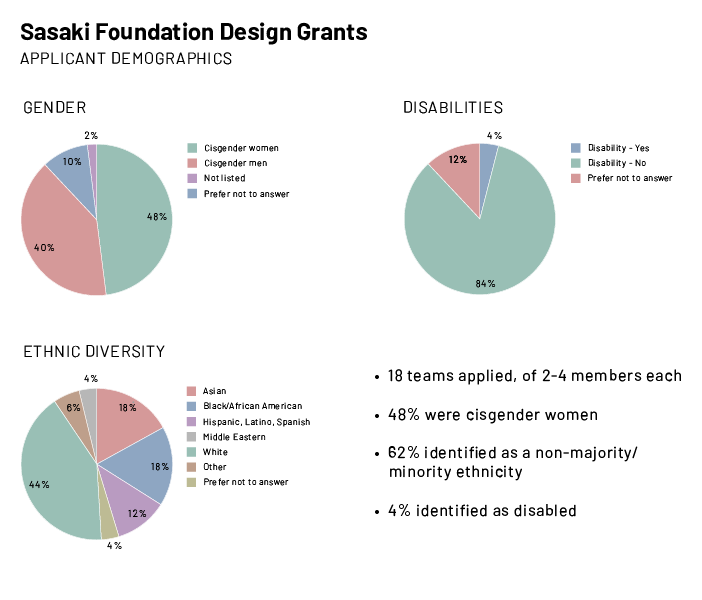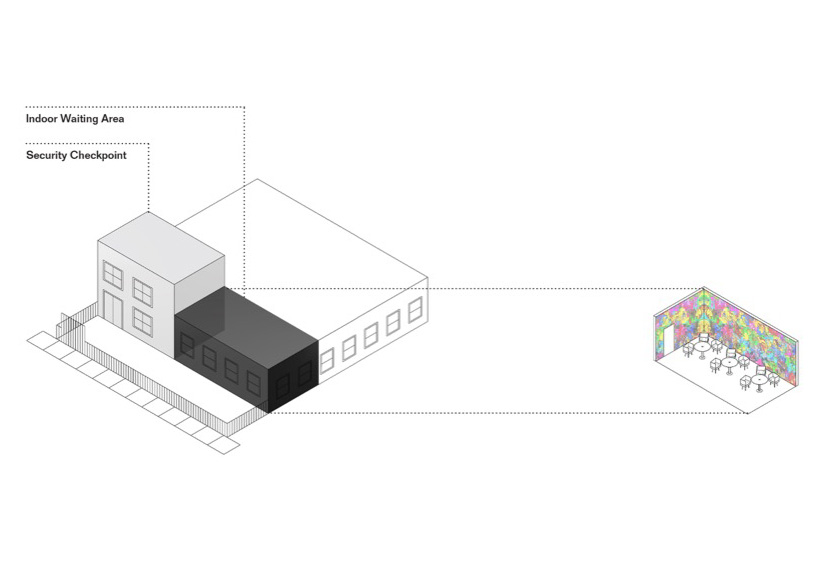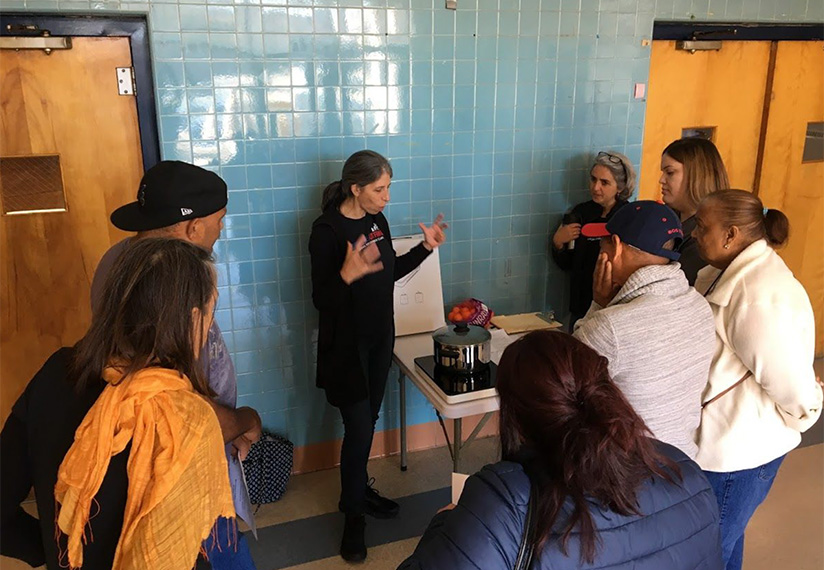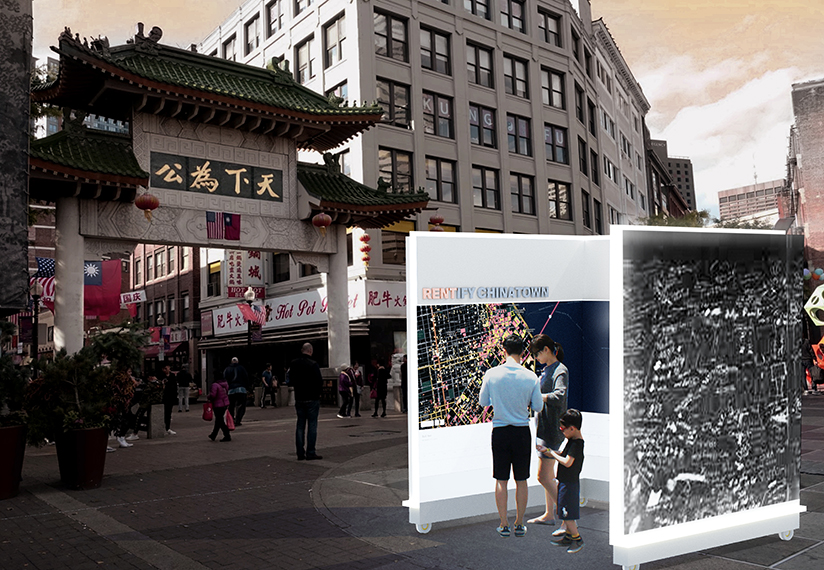Pitch Night 2019
Incubator at Sasaki
Sasaki Foundation
We leverage design to tackle global challenges—especially those that adversely affect certain communities.
Grants Process
In 2019, we launched a call for proposals for our second annual Design Grants competition. We received 18 applications representing 42 organizations, 11 institutions, 8 Boston communities, 6 Greater Boston cities, and 2 Gateway Cities.
Explore the 2019 winners and finalists below, and learn more about our 2019 call for proposals.
The call for proposals
Resilient communities are strong communities.
Unfortunately, some communities—especially those that are primarily people of color or historically low-income—are disproportionately impacted by environmental, economic, and social challenges. And yet, when we design the built environment to address these challenges, the voices of the residents are often left out of the process.
The Foundation is focused on issues of resiliency—proactive approaches to climate adaptation, housing, transit, and placekeeping. While these issues are felt throughout the world, we find many impacted communities right here in Massachusetts. We issued a call for proposals to find projects we could support that engaged communities in the Gateway Cities, Metro West, and Greater Boston.

The Grant Winners
Designing Shelters for Dignity
New Models for Housing
Elena Clarke, Laila Fozouni
While we believe that everyone has the fundamental right to safe and accessible housing, we acknowledge that this will take a massive cultural shift and that in the meantime many without homes are suffering in dehumanizing and degrading living conditions. Emergency homeless shelters strip those residing in them of dignity and privacy, and send a message to people without homes that they are not valued by society. We believe that with design and the involvement of the community, we can significantly improve the well-being of individuals residing in homeless shelters, at very little cost.
Meet the team, view the project narrative, and read an update.

indoor waiting area design concept
Image courtesy Designing Shelters for Dignity

community outreach
Photo courtesy HEET
From Energy Security to Energy Shift, in Boston and Beyond
Proactive Approaches to Climate Adaptation
Creative Community Building
Mary Brady, Ania Carmargo, Rickie Harvey, Nathan Phillips, Audrey Schulman
Applying lessons learned from last fall’s Merrimack Valley Gas Disaster, we will test and develop methods for Boston and other municipalities to effectively inventory and build household electric capacity across diverse housing stock and communities that (1) provide disaster responders with information about which houses are able to switch to electric-based heating/cooking in the event of future potential gas outages associated with deferred maintenance or climate change, and (2) simultaneously lay groundwork to prioritize electric upgrades in municipal housing stock for permanent electrification to meet aggressive climate action plans like Carbon Free Boston.
Meet the team, view the project narrative, and read an update.
Rentify Chinatown
Creative Community Building
Weiyi Cao, Zhuangyuan Fan, Ruichen Ni, Helena Rong, Tianyu Su, Juncheng Yang
Chinatowns across the country are experiencing rapid gentrification and being reshaped by the influx of luxury residential developments, institutional expansions, and short-term vacation rental models like Airbnb. Our study focuses on Chinese families under the threat of displacement and eviction in Boston’s Chinatown by utilizing Airbnb data to map and understand the issue from a top-down perspective. Meanwhile, we plan to engage with these communities through interviews and community meetings. To address a major challenge faced by the city and empower communities, our project will provide conducive insights and proofs for advocacy strategies, including policy interventions led by these organizations.

Rentify Chinatown concept rendering
Image courtesy Rentify Chinatown
The Finalists
Community Grant Winner
East Boston Mobility Hubs
Innovation in Transit and Access to Mobility Choices
Magdalena Ayed, Jarred Johnson
To address East Boston’s unique mobility challenges, our team is designing a prototype Mobility Hub: a designated, easily identifiable location where multiple modes of transportation converge, guaranteeing that on a 24/7 basis, people can find at least one and optimally several sustainable modes of transportation to get them to their ultimate destination. Mobility Hubs fit into their specific locations and are contextual while also being easily replicable. These hubs also serve as a convenient place to find accurate, real-time information about transit schedules and sustainable mobility choices. A Mobility Hub also adds vibrancy, safety, and legibility to the public realm.
Community Grant Winner
Knitting the Alewife: From Vulnerable to Vibrant
Proactive Approaches to Climate Adaptation
Creative Community Building
Doug Brown, Sarah Howard, Patricia Schroeder Loheed, Steven Nutter
Responding to over four decades of planning efforts by various entities, Knitting the Alewife is activating a constellation of community actors to collaboratively build resilience into the vulnerable urban system. By leveraging the Incubator at Sasaki along with public events, installations, and conversations, we will create a regional learning community of residents and stakeholder groups, designers, researchers, and adjacent towns. Working together to find shared meaning in climate data, we will explore and evaluate system-based strategies for the short-, medium-, and long term and co-implement a demonstration pop-up project. Our goal is to learn to knit resilience into a vibrant socioecological urban fabric.
Flexetail – Supporting Local Retailers to Enrich Local Economic Development
Creative Community Building
Joel Kamm, YeSeul Kim, Shelby Larsson, Aidan Syms
In a time where Amazon is killing off local mom and pop shops, retailers must be more agile to compete and support local economic development. But the problem with brick and mortar retail IS the bricks and mortar. Leasing space is expensive, time-consuming, and high-risk. Pushing out local retailers leads to food deserts, a lack of retail diversity, and a loss of character and personal connection for communities. Flexetail is a mobile space for small, local retailers to bring their products directly to consumers in an affordable and creative way. Think food trucks, but for retail.
The Institute for Plant-Based Placemaking
Creative Community Building
Kristophe Diaz, Zenovia Toloudi, Ethan Vogt
While legalized by Massachusetts, there is still no place to consume cannabis in public or outside of residences. These restrictions prevent community building, limit access to entrepreneurship, and perpetuate the stigma of cannabis use. With this Residency, The Institute for Plant-Based Placemaking seeks to research, design, and prototype strategies to address the challenges facing “social consumption” to support artists and activists as they help communities transform public spaces and cultural institutions. The project will culminate with the production of an exhibition to host collective public experiences in The Boston Common and the creation of a website of best practices.
